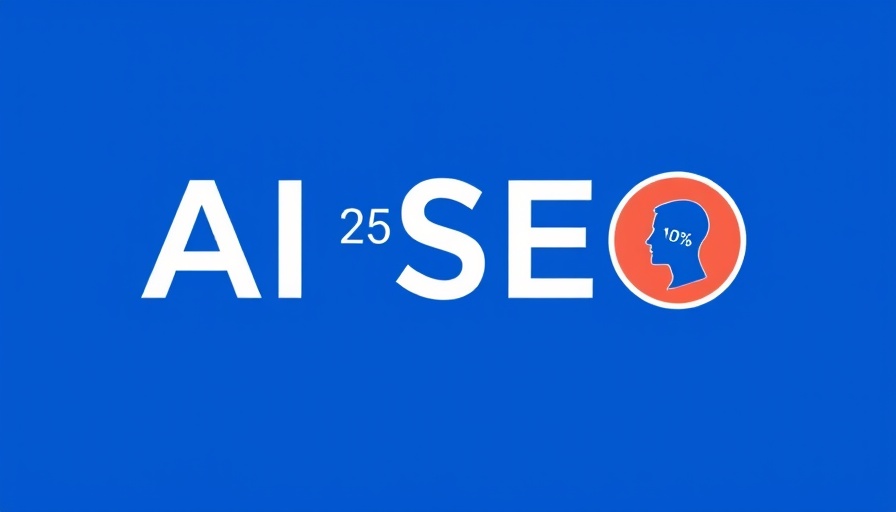
The Clash of SEO Titans: Established Leaders vs. New Entrants
In the rapidly evolving realm of digital marketing, the battle between established SEO tool giants and emerging AEO (AI-Enhanced Optimization) and GEO (Geo-Optimization) startups is intensifying. Recent discussions initiated by the CEO of Conductor suggest a fierce forecast for startups, with predictions indicating that 95% may fail to sustain themselves in a market dominated by well-established players. This prediction raises critical questions about the future of the SEO landscape, especially as new tools and technology emerge.
The Incumbents' Advantage: Why Experience Matters
According to the Conductor CEO, the big SEO platforms—like Semrush, Ahrefs, and themselves—hold a tremendous advantage due to their longevity and proven track records in crawling the web. With over a decade of institutional knowledge, these companies possess robust data pipelines that allow them to adapt more readily to shifts in technology, like the rise of AI in search functionality. Coupled with large engineering teams and substantial annual recurring revenues (ARR), these incumbents seem well-positioned to outpace startups in the coming AI-centric market.
Defending the Niche: Can Startups Survive?
Yet, the narrative is not entirely bleak for startups. Some industry voices argue that these smaller enterprises may thrive by carving out niches that established companies might overlook. As co-founder of SparkToro Rand Fishkin pointed out, the allure of creating a “lifestyle business” that generates between one to three million dollars in ARR is very real for many entrepreneurs. These businesses prioritize not only profitability but also the work-life balance that comes with smaller operational scales. Such perspectives challenge the idea that success is solely defined by large-scale operations serving Fortune 500 companies.
The Need for Innovation: Startups as Catalysts
Critically, startups can also be seen as innovative frontiers, unencumbered by legacy systems and old methods that may not work within the AI framework. Daniel Rodriguez, co-founder of Beewhisper, supports this assertion, suggesting that the future winners will likely be those who rethink customer interactions regarding AI. Instead of building on existing infrastructures, these new entrepreneurs can create solutions that are inherently designed for AI functionality, thus potentially reflecting users' needs more accurately than traditional platforms.
The Path Ahead: What Does The Future Hold?
The unfolding situation suggests a landscape where both established companies and innovative startups could coexist, albeit in differing capacities. While some startups may falter, others will likely find their footing by addressing unique market demands or innovating in response to changing consumer behaviors. As the digital marketing landscape evolves, the interplay between legacy platforms and agile new entrants will be fascinating to observe.
Conclusion: Navigating a Complex SEO Future
As the debate continues regarding the future of AEO and GEO startups in an arena dominated by established brands, what this ultimately signifies for the SEO industry remains to be seen. With perspectives varying from those who advocate traditional corporate growth to those who celebrate the potential of lifestyle businesses, the market's evolution will reflect a blend of resilience and innovation. To stay informed and engaged with these developments, industry professionals should remain open to both traditional and unconventional approaches in the SEO sphere.
 Add Row
Add Row  Add
Add 




Write A Comment